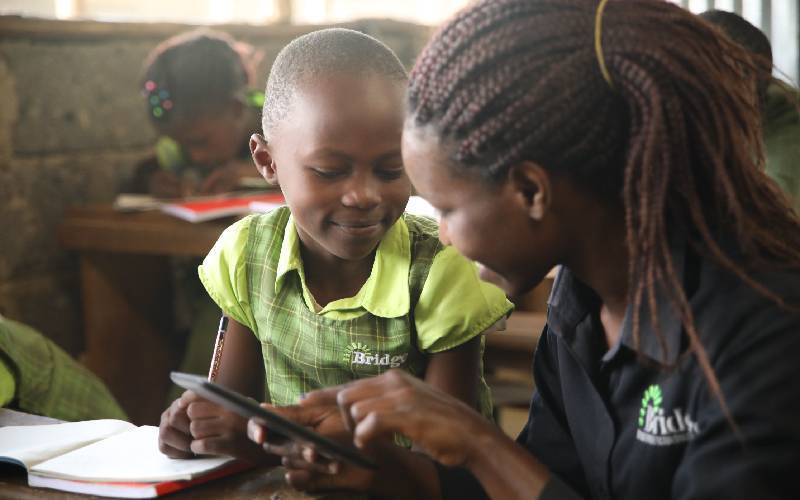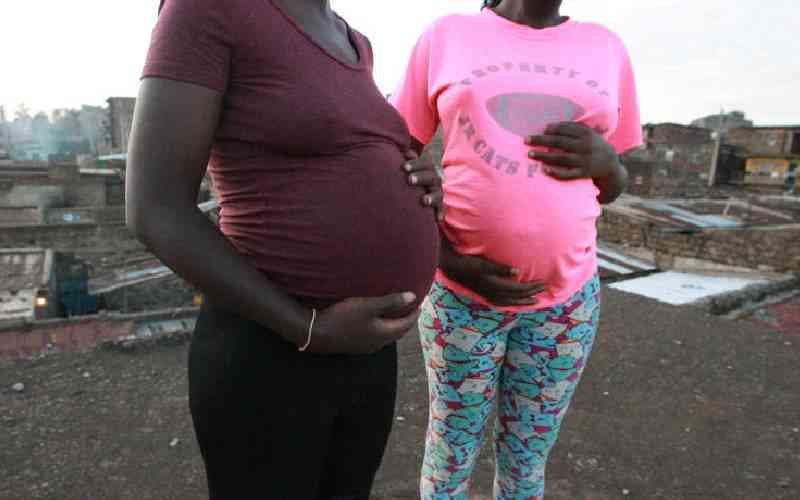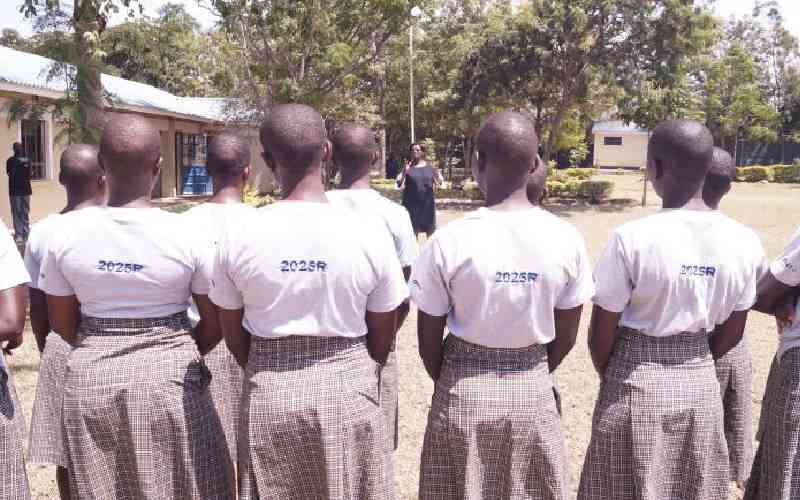
Principal Secretary for Children Welfare and Social Protection, Careen Ageng’o, raised concerns over the growing challenges confronting children in Kenya—foremost among them, teenage pregnancy, a key concern within what officials are now calling the “Triple Threat” to child welfare.
As the nation marked the 2025 Day of the African Child, government officials, community leaders, and stakeholders converged in Bungoma County to address these challenges and provide a way forward.
Speaking during the event, Ageng’o underscored the urgency of tackling violence against children, including the escalating rates of adolescent pregnancies in Kenyan schools.
“We have children giving birth before they reach the age of 18,” she stated. “These young girls are being denied their right to education, and their futures are being compromised before they even begin.”
This phenomenon, now categorised alongside child abuse and school dropout as part of the "Triple Threat", is drawing serious national attention.
According to data shared during the event, nearly half of Kenya’s population—about 46%—are children. This statistic, compounded by teenage pregnancy, threatens not only the well-being of individuals but the broader future of the Kenyan economy.




“Teen pregnancy is not just a personal issue—it’s a national emergency,” said the PS. “These are children raising children, and without access to school or proper healthcare, we risk breeding cycles of poverty and dependence.”
Although teenage motherhood declined by more than 3 percentage points nationally between 2014 and 2022, regional disparities reveal a concerning trend.
Samburu and West Pokot counties lead with the highest rates, where 50% and 36% of teenage girls, respectively, have reportedly ever been pregnant. In contrast, Nyeri County recorded the lowest level of teenage motherhood at just 4.5%.
Despite the overall national decline, some counties experienced significant increases.
Notably, Bungoma County saw a rise of over 5 percentage points, from 14.4% in 2014 to 19% in 2022. In 2023, a particularly alarming case was reported at St. Thomas Aquinas High School in Chesikaki Ward, Mt. Elgon Constituency, Bungoma County, where 54 girls were reported to be pregnant.
The PS also emphasised the government's renewed commitment to child-centred planning and budgeting in line with the theme for this year’s celebration, “Planning and Budgeting for Children’s Rights: Progress Since 2010”.
The theme focused heavily on ensuring children are meaningfully involved in policy development and budget allocation.
Through a new participatory budgeting initiative, children from various counties were invited to contribute directly to national and county planning conversations.
Their top priorities included access to food, clean water, school bursaries, digital learning tools, and sanitary towels—all of which have direct links to reducing teenage pregnancy by keeping girls in school and addressing socio-economic vulnerabilities.
Stay informed. Subscribe to our newsletter
“The girls told us clearly that they need support to stay in school. Without basics like sanitary towels or school fees, many drop out and become more vulnerable to early pregnancy and exploitation,” she added.
Bungoma County’s governor echoed these sentiments, highlighting the local administration’s investment in maternal and child health, early childhood education, and a school feeding programme dubbed “Uji”, aimed at ensuring children attend and stay in school.
At the national level, the government has ramped up its legislative backing through the Children Act 2022, which aligns with international child rights standards and provides a framework for protecting children’s access to education, healthcare, and social support.
The Inua Jamii cash transfer programme was cited as a model intervention that supports orphans and vulnerable children, helping them remain in school and avoid the pitfalls that lead to early pregnancy or child labour.
As Kenya prepares its 2025–2026 national budget, officials emphasised that children’s welfare must be a cross-sectoral priority.
The PS pledged ongoing collaboration with the National Treasury, county governments, and community stakeholders to ensure that budgeting is not just inclusive but impact-driven.
“There is no economic development without investing in children,” she said. “The fight against teenage pregnancy must be part of a larger agenda that ensures every child has the opportunity to thrive.”
Bungoma’s governor called on both the national and county governments to allocate resources in a way that directly addresses the realities of children on the ground.
“Planning without budgeting is a wish. Budgeting without impact is a failure,” he said. “Let us act now—not just for the children of today, but for the future of our nation.”